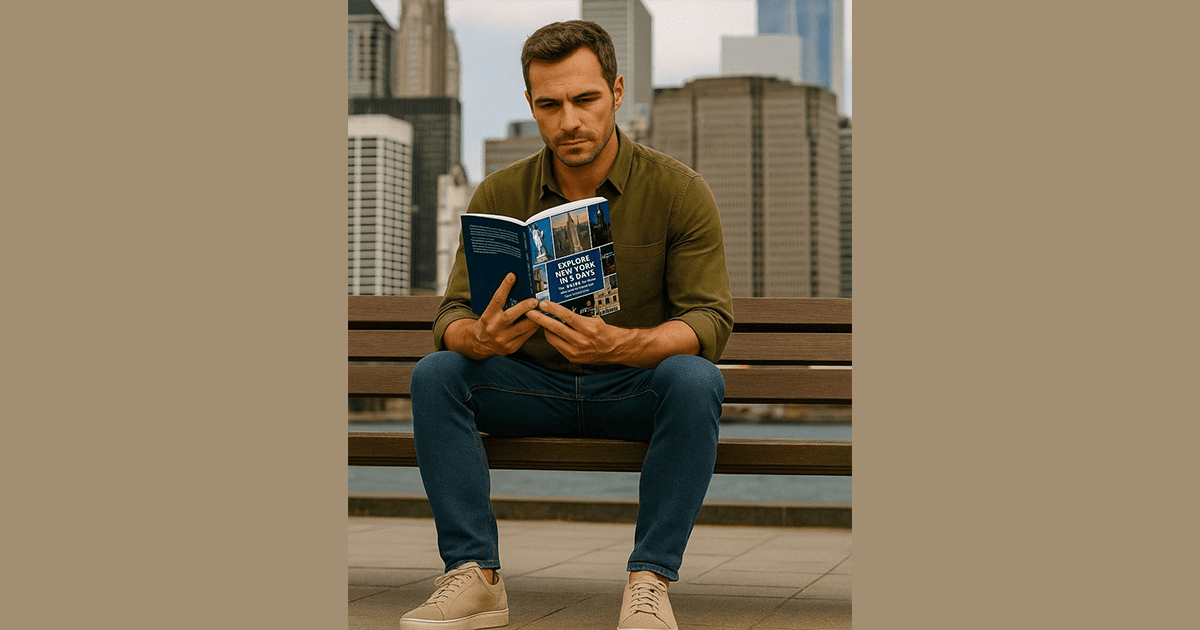- Italian
- English
C’è un angolo di mondo, sospeso tra il un mare e i sogni, che per dieci sere all’anno diventa il salotto più luminoso d’Italia. È il giardino del Grand Hotel di Rimini, dove la sesta edizione de La Terrazza della Dolce Vita ha riaperto le sue porte come una finestra sulla bellezza, sul coraggio e sulle emozioni che sanno di vita vera e soprattutto di rinascita, il tema centrale, il filo conduttore di queste serate.
Prima degli incontri, si comincia con la magia del cinema: l’inaugurazione della mostra dedicata ad Alberto Sordi, “Maschera di un vitellone”, curata da Marco Dionisi Carducci e Paola Comin. Tra aneddoti e ricordi, la voce di Stefania Sandrelli si fa bambina, rievoca le risate sul set, quel teatro della vita che non smette mai di sorprendere. L’inaugurazione della mostra è un omaggio prezioso, capace di fermare il tempo attraverso fotografie che raccontano memorie di set che hanno definito un’epoca. Si ride tra aneddoti, ci si commuove, si riscopre quel filo invisibile che lega Sordi a Rimini.
Dalla mostra, ci si sposta in giardino, in un luogo che sa di memoria e promessa, di ferite antiche e nuove primavere. Rimini è uno di questi luoghi. Lo dice con voce ferma e occhi che non dimenticano il sindaco Jamil Sadegholvaad, primo ospite della serata. Il giardino del Grand Hotel profuma di storia e mare, la brezza sfiora le luci sospese e il pubblico sembra trattenere il respiro mentre Simona Ventura e Giovanni Terzi pongono la domanda principe di questa edizione: “Cos’è per Rimini la rinascita?” Il sindaco non ha bisogno di pensarci troppo: Rimini è stata la città più bombardata d’Italia dopo Cassino, ricorda. Rimini è dolore che non si è mai arreso, è la tenacia di chi ha saputo ricostruire, di chi sa che rinascere non è un atto singolo, ma una scelta quotidiana. Da qui, tra parole che sanno di memoria e speranza, il dialogo scivola verso l’aeroporto, verso il futuro, verso tutto ciò che la città può ancora diventare.
Poi le voci cambiano ritmo. Candida Livatino porta in scena il mistero della scrittura, svela come un tratto, una curva, una firma possano raccontare un’intera vita. Giovanni confessa di scrivere in stampatello, Candida sorride: “È la scrittura di un cervello digitalizzato.” Si ride, si impara, ci si specchia l’uno nell’altro.
Umberto Brindani, direttore di Gente, riflette ad alta voce su giornalismo e giustizia, su copertine che inseguono scandali e un sogno che ancora aspetta: quella foto, un giorno, di Zelensky che dichiara la pace. Piccoli frammenti di verità, sospesi nell’aria come lucciole in una notte d’estate, si intrecciano agli sguardi del pubblico.
Quando il giardino respira come un teatro incantato e la serata è già un romanzo, le pagine si arricchiscono di altre voci: un’icona, Stefania Sandrelli, accolta da un video che è un abbraccio alla sua carriera. Parla di sé, del mestiere più bello del mondo, e tra le righe si sente la gratitudine infinita verso quel pubblico che l’ha cresciuta e accompagnata. La sua grazia è tutta nell’umanità con cui parla, ride, ricorda. Simona le chiede della rinascita e Stefania la vede nel pubblico: “È doveroso per un attore rinnovarsi, ma è il pubblico la vera rinascita, è la guida che ci sostiene e che va rispettata.” Quando racconta dei figli, la voce trema, gli occhi brillano: “Sono il mio primo pensiero al mattino e l’ultimo prima di dormire. Mi hanno sempre sostenuta al di là della parentela. Sono delle persone perbene” La platea trattiene il fiato, qualcuno si asciuga le lacrime. Non è più un incontro, è un atto d’amore. Qui interviene Giovanni Terzi, con la voce che si fa emozione pura: “Simona mi ha donato un progetto di vita, di amore e di famiglia: i valori più importanti per tutti.” Le sue parole fluttuano tra il pubblico come un abbraccio, unendo cuori e storie in un’unica, grande verità condivisa. Si ride quando si torna agli aneddoti di set, a quella sua incapacità di trattenere una risata davanti al genio di Sordi, alle bonarie ramanzine dei registi, alle notti passate tra copioni e sogni. Accanto a lei, l’uomo che condivide il presente, il compagno di una vita nuova, il regista Giovanni Soldati. Intanto anche l’amore di Simona e Giovanni ti accarezza e non smettono di ricordare che la rinascita è anche, e forse soprattutto, un atto di cuore.
Quando la serata scivola verso la fine, le luci si abbassano, la scena si tinge di magia. Giada Lini, ballerina di “Ballando con le Stelle” e Graziano Di Prima, ballerino e coreografo, danzano sulle note di Dirty Dancing: un vortice di passione e sospiri che travolge chi guarda. Simona e Giovanni si stringono ancora, il pubblico trattiene il fiato e per un attimo tutto il giardino diventa un’unica, immensa emozione condivisa. Un finale da brividi che lascia il pubblico in piedi, il cuore pieno, gli occhi lucidi.
E così, sotto le luci morbide del Grand Hotel, La Terrazza della Dolce Vita si trasforma in ciò che dovrebbe essere sempre la cultura: un incontro di anime, una promessa di rinascita, un invito a credere che la bellezza, quando è autentica, può ancora cambiare il mondo. Simona Ventura e Giovanni Terzi non conducono semplicemente un evento: lo accarezzano, lo plasmano, lo rendono casa. Con loro, il pubblico non assiste: partecipa, si commuove, sorride, perché qui le interviste non sono mai domande e risposte, ma viaggi intimi, “oltre il personaggio”, in quell’istante raro in cui la verità si spoglia di ogni maschera. Finisce la prima serata della Terrazza, ma non finisce il suo incanto. Rimini torna a respirare come una promessa mantenuta: che l’arte, la cultura, l’incontro sincero tra le persone possono ancora scrivere pagine che sanno di rinascita, di bellezza, di vita vera. La Terrazza della Dolce Vita non è un evento mondano, è un’ode alla vita che resiste, alla cultura che unisce, all’arte che salva: è Rimini che si racconta al mondo, tra stelle vere e stelle di cinema, ricordandoci che la rinascita è possibile, sempre.
There is a corner of the world, suspended between the sea and dreams, that for ten magical nights each year becomes Italy’s brightest salon. It’s the garden of the Grand Hotel in Rimini, where the sixth edition of La Terrazza della Dolce Vita opened its doors once again, as a window onto beauty, courage, and emotions that feel achingly real — all wrapped around this year’s central theme: rebirth.
Before the evening’s conversations begin, the magic of cinema takes center stage: the inauguration of a special exhibition dedicated to Alberto Sordi, “Maschera di un vitellone” (“Mask of a Big Calf”), curated by Marco Dionisi Carducci and Paola Comin.
Through anecdotes and memories, Stefania Sandrelli’s voice softens, becoming almost childlike as she recalls the uncontrollable laughter on set, that theatre of life that never ceases to amaze. The exhibition is a precious tribute, freezing time through photographs that capture moments from film sets that shaped an era. There are smiles, there are tears, and above all, a rediscovery of that invisible thread that ties Sordi eternally to Rimini.
From the exhibition, the audience moves to the garden, a place heavy with memory and alive with promise, a space carrying both old scars and new springs. Rimini is one of those rare cities that knows both pain and rebirth. Its mayor, Jamil Sadegholvaad, the first guest of this edition of La Terrazza della Dolce Vita, says it with a firm voice and eyes that remember:
As the salty breeze brushes the softly glowing lights, Simona Ventura and Giovanni Terzi ask the question that defines this year’s theme: “What does rebirth mean for Rimini?”
The mayor doesn’t hesitate: “Rimini was the most heavily bombed city in Italy after Cassino,” he recalls. “Rimini is pain that never surrenders. Rebirth here is not a single act, but a choice we make every day.”
His words carry like a warm wind, bridging memory and hope, guiding the conversation toward the airport, toward the future, toward everything the city can still become.
Then the evening changes rhythm. Candida Livatino steps in, unveiling the mystery of handwriting, showing how a stroke, a curve, a signature can tell an entire life story. Giovanni admits he writes in block letters. Candida smiles: “That’s the handwriting of a digitalized brain.” There’s laughter, reflection, and a sense of connection between stage and audience.
Umberto Brindani, editor-in-chief of Gente, shares his thoughts on journalism, justice, and the covers that sell scandals while secretly dreaming of one that could make headlines for peace: “One day, I hope to see Zelensky on a magazine cover declaring the end of the war.”
Small fragments of truth float through the summer night air like fireflies, lighting up the faces of those who listen.
As the evening feels more and more like a living novel, another chapter unfolds with the arrival of an icon: Stefania Sandrelli. Welcomed by a moving video tribute to her illustrious career, she sits down to speak of her craft “the most beautiful job in the world,” she calls it but beneath the words there’s a palpable gratitude toward the audience that has walked alongside her for decades.
Her grace is not the grace of a diva but of a deeply human woman who speaks, laughs, remembers. Simona asks about rebirth, and Stefania doesn’t hesitate: “An actor has a duty to keep renewing themselves. But the real rebirth is the audience. They are our guide, they are who we owe everything to.”
When she speaks of her children, her voice trembles, her eyes shine: “They are my first thought in the morning and my last at night. They’ve always stood by me beyond family ties. They are good people.” The garden falls silent, someone quietly wipes away tears. It is no longer an interview, but an act of love.
At this moment, Giovanni Terzi steps in, his voice full of emotion: “Simona has given me a project of life, of love, of family, the most important values for anyone.” His words float above the crowd like a shared embrace, binding hearts together in a rare and precious moment of truth.
Laughter returns as Stefania recalls stories from the set, her inability to hold back giggles in front of Sordi’s genius, the playful scoldings from directors, the long nights of scripts and dreams. Beside her sits the man she shares her present life with, director Giovanni Soldati, while nearby the love and complicity between Simona and Giovanni remind everyone that rebirth is, perhaps above all, an act of the heart.
As the evening slides toward its end, the lights dim and magic takes over. Giada Lini, dancer of “Dancing with the Stars”, and Graziano Di Prima, professional dancer and choreographer, set the stage on fire with their rendition of Dirty Dancing. A whirlwind of passion and emotion sweeps over the crowd. Simona and Giovanni hold hands, the audience holds its breath, and for a brief, unforgettable moment, the entire garden becomes a single shared heartbeat.
The finale is breathtaking, leaving everyone on their feet, their hearts full, their eyes glistening with tears.
And so, under the soft lights of the Grand Hotel, La Terrazza della Dolce Vita transforms into what culture should always be: a meeting of souls, a promise of rebirth, an invitation to believe that true beauty can still change the world.
Simona Ventura and Giovanni Terzi don’t just host an event, they nurture it, shape it, make it feel like home. With them, the audience doesn’t just watch: they live it, they laugh, they cry. Because here, interviews are never just questions and answers, but intimate journeys beyond the persona, rare moments where truth lays itself bare.
The first evening of La Terrazza della Dolce Vita comes to an end, but its magic lingers in Rimini’s air like a promise kept: that art, culture, and human connection can still write pages filled with rebirth, beauty, and life itself.
By author








